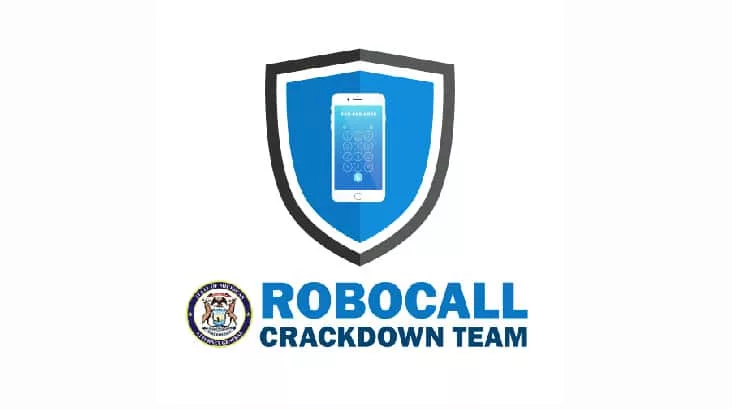If you had any doubts that robocalls continue to drive us all crazy, Michigan’s Attorney General has some numbers that clearly confirm what a pain they have become.
Attorney General Dana Nessel says today that more than 1,700 people have signed up to become members of her Robocall Crackdown Team, and since the mid-November launch of the initiative, more than 1,800 robocall complaints have been submitted to her office.
In that short time frame, the Robocall Complaint Form has become the most viewed complaint form on the entire Attorney General’s website. Here is a link to that form:
https://www.surveymonkey.com/r/robocallcomplaint
Michigan residents in 2019 received more than 1.5 billion robocalls. The top three topics mentioned in complaints submitted to the Attorney General’s office are these (and you can listen to examples of each, if you haven’t already gotten them yourself, by clicking the highlighted words):
Recordings provided by YouMail
Hundreds of Michigan complaints have been utilized as the first step in opening investigations.
Nessel tells us, “Michigan is stepping up to help put an end to illegal robocalls,” and adds, “Robocall scammers are not only a nuisance, they are preying on the pocketbooks of good honest people, and that has to stop.”
Aside from the common types of robocall topics mentioned above, the Attorney General’s office in January noticed an uptick in new robocall campaigns, including these (and again you can listen to each by clicking the highlighted words):
Recordings provided by YouMail
Nessel contends, “Robocallers will continue to adjust their approaches to scam us, and we must remain vigilant in our efforts to expose them,” and concludes, “The public can be instrumental in our investigations through our Robocall Crackdown Team and each day we’re continuing to learn more about how these bad actors operate.”
To further address the pervasive problem of robocalls, the Attorney General’s office is:
- Continuing preliminary investigative work into potential targets involved in major robocalling operations…
- Working with the telecom industry on solutions and approaches to tracing illegal robocalls to their sources…
- Developing protocols and procedures to expand and guide participation in our Robocall Crackdown Team and to supplement our enforcement efforts…
- Working with our partners in the Legislature to enact new laws that will allow our department to hold bad actors accountable…
Authorities say that the best way to deal with robocalls is to simply hang up or don’t answer the phone if you don’t recognize the number. However, to aid investigators in their efforts to hold robocallers accountable, certain pieces of information are extremely helpful to the department’s efforts to investigate, particularly when submitted to the Attorney General’s office as part of an official complaint:
- Robocaller’s phone number…
- Your phone number and service provider (Verizon, AT&T, T-Mobile, Sprint, etc.)…
- The date and time of the robocall…
- Whether the robocall was soliciting goods or services worth at least $25…
- The topic of the robocall scam (e.g. student loans, Social Security numbers, IRS liability, etc.)…
The Attorney General’s office offers this caveat: Robocalls to landlines cannot be traced back so any complaints about landline calls cannot be used to further the department’s investigation.
To learn more about Michigan’s initiative to crackdown on robocalls, you can visit the Attorney General’s website online at the link below:
https://www.michigan.gov/ag/0,4534,7-359-82917_94178—,00.html






